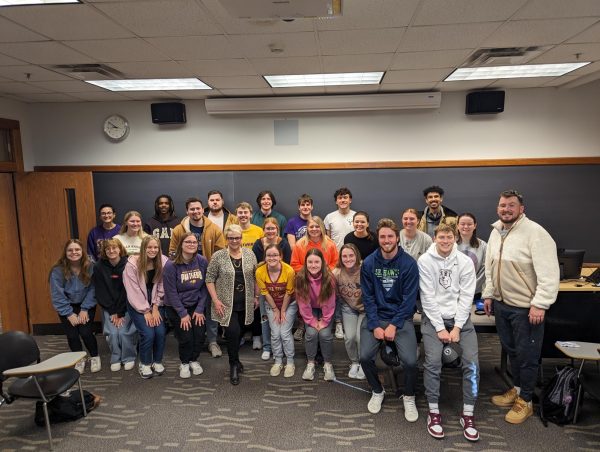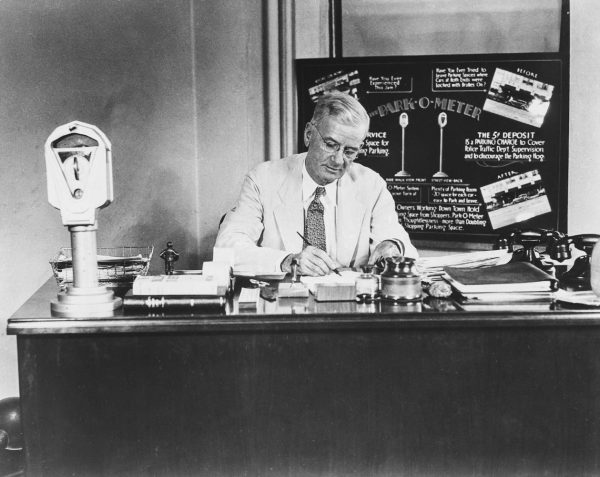“1984” in 2015
Sep 15, 2015
Literature has much to teach businesses about ethics, which is exactly what one lecture series aims to do.
Thursday, Sept. 17, Dr. James Lang, professor of English and director of the center for teaching excellence at Assumption College in Massachusetts, will be appearing as the keynote speaker at the Ethics in Higher Education conference. He will be delivering a lecture about George Orwell’s novel, “1984” entitled, “The Poor of ‘1984’: The Roots of George Orwell’s Final Novel.”
According to Craig VanSandt, associate professor, and David W. Wilson, chair in business ethics, Lang was chosen “because he wrote a book called Cheating Lessons,” and that “[Lang] mentioned that he’s writing this new book about Orwell, and as he talked about what he was doing it seemed to make sense to sponsor that as the chair of business ethics.”
The Poor of “1984”: The Roots of George Orwell’s Final Novel lecture will be held from 7:00 to 8:30 p.m. in Seerley Hall on Thursday. The Ethics Conference will follow on Friday, Sept. 18 in Maucker Union.
VanSandt explained how Orwell’s “1984” dealt with themes of “business and capitalism as a system that created oppression of the poor.”
Most commonly, “1984” is interpreted as a work that criticizes communism, but VanSandt said, “Most of the readers have interpreted Orwell’s work as criticisms of communism and power of the state, and that certainly can be read into it, but Doctor Lang’s contention is that Orwell was talking more about big business and capitalism than he was communism.”
With this in mind, VanSandt began to think of how business plays a big part in society and how Lang’s lecture would be a “good way to get people thinking about the inequality of wealth and the inequality of the economy that we see in the United States today and what role capitalism has to play in that.”
The Ethics Conference, which was started in 2013 with the theme of Ethics in Organizations, is held once every two years. The main sponsor of the conference is the Center for Academic Ethics, headed by Anita Gordon.
VanSandt discussed certain points of why this conference is important.
“One: to help tie business and business education to the liberal arts. Dr. Lang is a professor of English, “ said VanSandt. “He’s using a well-known literary piece as his basis for critique. But it certainly affects business and the economy very well. The second reason I think it’s important is just to get people thinking about what we want from our business sector,” said VanSandt. “So far, basically what we’ve told business to do is make as much money as possible, we’re seeing that that but itself leads to a lot of problems, and so if we can start thinking about adding things onto business’s plate like ‘make money but do it ethically and do it without harming the environment,’ and those kinds of things.”
Though he doesn’t see the conference getting bigger in future years, VanSandt sees it opening to more off-campus participants, hoping to see involvement of the business community of Cedar Falls, Waterloo and the surrounding area.
“It is important to serve the needs of students and faculty and staff,” said VanSandt, “but as a state supported university we should also be doing things that citizens of the state of Iowa are vitally interested in and could benefit from us talking about.”
VanSandt hopes that students realize that there is more to just remembering something only to get a good grade on a test or an assignment.
“There’s more to it than that,” said VanSandt. “It’s not only what you learn of the material for that test, but it’s also how do I approach learning, because everybody’s going to have to continue to learn all the time. And if you cheat on learning in college then you’re less well-equipped to learn what you need to learn when you’re working.”














